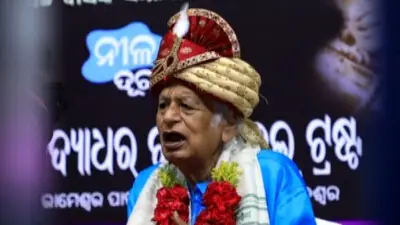Recommended Stories
He also favoured a government policy to provide food security to people below the poverty line.
"It is enforceability, which is the very essence of rule of law, that is important," he said at the 17th Commonwealth Law Conference here earlier inaugurated by Prime Minister Manmohan Singh.
The Chief Justice urged the Prime Minister to consider establishing the Indian Regulatory Service, on the lines of IAS and IPS, with experts in regulatory laws.
Delivering his address on "Emerging Economies and the Rule of Law: Challenges and Opportunities", he said, "It was the paramount duty of judges to adopt an approach that would enhance social welfare."
"Equal access to food can`t be given to all but we have to now apply the Minimum Core Approach as well as the Basic Social Goods Approach.
"The government cannot say it will not provide expected relief to the deprived classes (people below the poverty line)," the Chief Justice observed.
Justice Kapadia noted that they (courts) were not substituting their opinion for the legislature.
"We are also not putting our values or societal values. It is just a shift in the approach which brings in a new jurisprudence that makes enforceability. It is enforceability, which is the very essence of rule of law, that is important," he said.
"It was the paramount duty of judges to adopt an approach that would enhance social welfare," he remarked.
Asking the jurists from Commonwealth countries, who were taking part in the five-day conference to ponder if poverty could be the ground for judicial review, the Chief Justice wondered if they could not evolve a judicious principle to ensure basic needs like food, education and healthcare reached the deprived sections.
"As the UNO suggested, we have to read equality in terms of deprivation. If food cannot be provided to all, can it not be provided to people falling below the poverty line? If healthcare can`t be given to all, can you not evolve a judicious principle," he asked.
Providing the answer himself, Justice Kapadia said the minimum core approach was the principle evolved and it was for the courts to implement it.
"Given the limited resources at our command, you cannot expect the government to provide food, education and healthcare to all. We have to give priority in terms of equality. Equality as understood under the Constitution.
"It is open for the government to tow the wealth out of financial crunch as per its law because we have to now apply the minimum core approach.
"The government can`t say it has no funds since it is obliged to administer certain economic reforms," the Chief Justice said.
Referring to the Indian economy, Justice Kapadia said though it was today one of the emerging economies after it opened up in early 1990s under Manmohan Singh, it lacked financial inclusive growth.
"The industrial growth is 12 per cent and the services growth is 11-12 per cent. But there is stagnation in agricultural growth at four per cent. And this is why we have scarcity both in terms of commodities and food. This also has a chain reaction as far as inflation is concerned," he pointed out.
On his suggestion to the Prime Minister to consider establishing the Indian Regulatory Service, he said, "We have regulators in SEBI, under the Electricity Act and others. But we need an Indian Regulatory Service with experts and expertise to ensure that all benefits reached the poor."
The Chief Justice summed up saying, "The art of giving should become part of the art of living."












